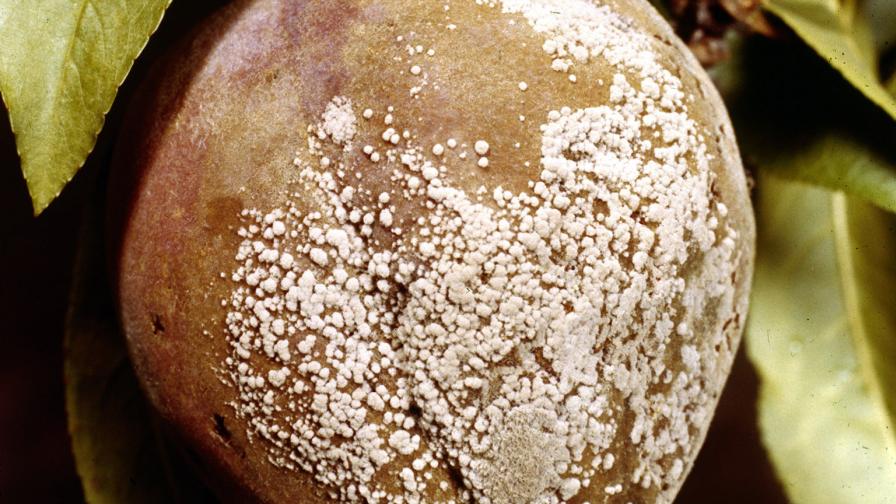Plant Virus Turned Protector
The plant-destroying virus farmers call one of their worst enemies may soon be an ally in the fight against crop pests, say University of Florida (UF) researchers.
Scientists genetically modified tobacco mosaic virus so that it produces a natural, environmentally friendly insecticide, turning the pathogen into a microscopic chemical factory, says Dov Borovsky, an entomologist with UF’s Institute of Food and Agricultural Sciences.
The modified virus is almost completely harmless to plants and simply produces the insecticide.
Plants inoculated with the virus quickly accumulate enough of the insecticide to kill insect pests that consume their leaves, says Borovsky.
“This is the first time we know of that anybody put on tobacco mosaic virus something that actually can act as an insecticide and protect the plant,” says Borovsky, lead author of the paper. Tobacco mosaic virus is commonly used in genetic research because genes can be added to it easily.
Sound Science
The chemical, known as trypsin-modulating oostatic factor (TMOF) stops insects from producing a crucial digestive enzyme called trypsin, he says. Like tobacco mosaic virus, TMOF has no effect on people. But it can cause insects to starve to death, unable to draw nutrients from food.
Tobacco mosaic virus was the first virus ever formally identified by scientists, says Charles Powell, a plant pathologist with UF’s Indian River Research and Education Center in Fort Pierce and a co-author of the study.
Though notorious for attacking tobacco and other plants in the Solanaceae family — including tomatoes, eggplants, bell peppers, and potatoes — the virus threatens eight other plant families. The bright side, Powell says, is the modified virus can protect any of those plants.
“The virus has a very broad host range, so it can be used for very many plants,” he says. “You can’t use it for monocotyledonous plants like corns and grasses. But many of the other broad-leafed plants, including many fruits and vegetables, could potentially be used with it.”
Helping Hands
The virus reproduces well in plants, but it cannot replicate itself from one generation of plant to another, Powell says. Because crop plants inoculated with the virus will not pass along the TMOF-making properties to their seeds, farmers would need to inoculate their crops each year.
The modified tobacco mosaic virus produces TMOF in the protein coating its exterior. So inoculated plants accumulate more TMOF every time the virus reproduces.
When insects eat the plants, they also consume TMOF. Death can occur within 72 hours, if the insect is vulnerable. The exact range of pests susceptible to TMOF appears to be broad. There are two types of enzyme systems insects use to digest food; one includes trypsin, and all species with this system may be harmed by TMOF.
Crop pests proven vulnerable to TMOF include the tobacco budworm and citrus root weevil, Powell says. Mosquitoes and several other blood-feeding insects are also susceptible.
Scientists plan to investigate further practical applications of TMOF, he says.
“TMOF works against the diaprepes citrus root weevil, it causes a lot of problems here in Florida,” Borovsky says.
UF researchers have produced genetically modified alfalfa plant that generates TMOF, he says. Because the weevil eats alfalfa, farmers may one day protect citrus trees simply by growing patches of the modified crop nearby. They could also introduce the TMOF-producing gene into citrus roots.
Tobacco mosaic virus might be suitable for delivering other insecticides, Powell says. Similar viruses that naturally occur in other plant species might also be modified for beneficial use.









